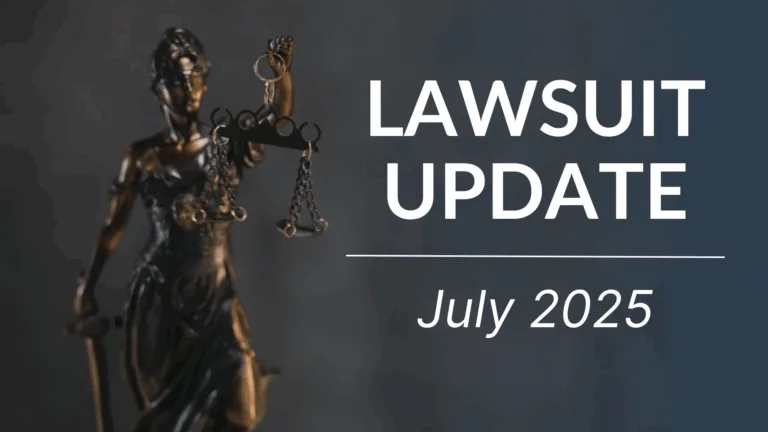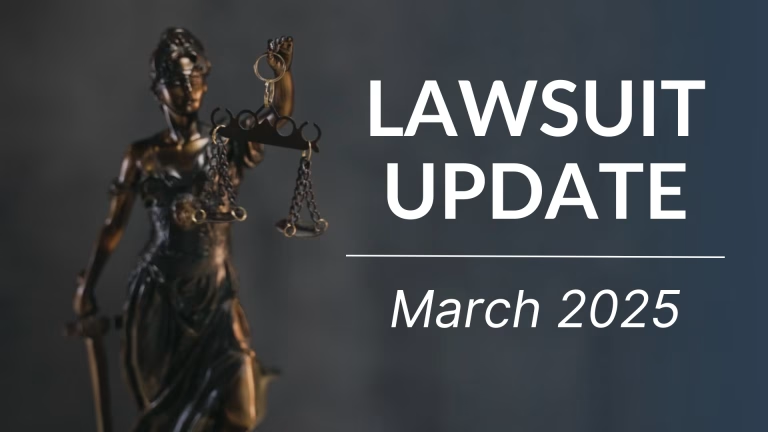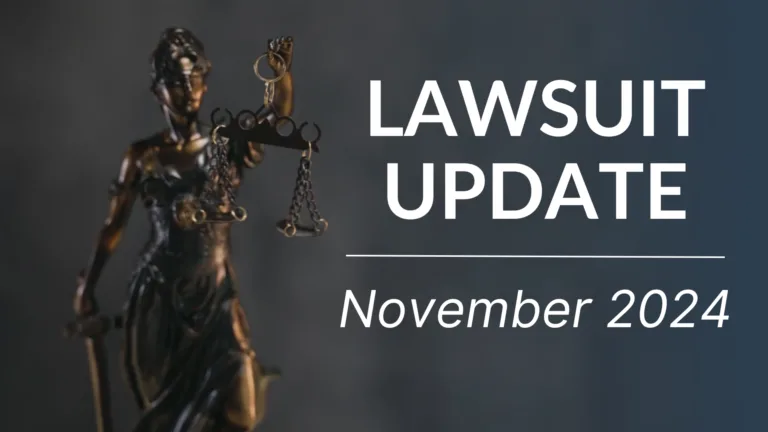
Class Action Law Update – April 24, 2023
Several noteworthy class action lawsuits have recently been filed across a range of industries. These lawsuits involve allegations of discrimination, securities fraud, and other issues. In this Class Action Law Update provided by Audet & Partners, LLP, we will take a closer look at some of the most significant class action lawsuits filed in recent weeks.
First, a class action lawsuit was filed against investment bank Goldman Sachs, alleging that the bank discriminates against women in its hiring and promotion practices. The lawsuit claims that Goldman Sachs has a “boys’ club” culture and that women are routinely paid less than men and are given fewer opportunities to advance in their careers. The lawsuit seeks to represent all current and former female employees of Goldman Sachs in the United States.
Another notable lawsuit was filed against pharmaceutical company AbbVie, alleging that the company engaged in securities fraud by misleading investors about the safety of its blockbuster drug, Humira. The lawsuit claims that AbbVie downplayed the risks of serious side effects associated with Humira, including cancer and infections. The lawsuit seeks to represent all investors who purchased AbbVie stock between November 2018 and September 2021.
In the technology industry, a class action lawsuit was filed against Facebook, alleging that the company violated antitrust laws by acquiring rival social media companies to stifle competition. The lawsuit claims that Facebook’s acquisitions of Instagram and WhatsApp were anti-competitive and allowed the company to maintain a dominant position in the social media market. The lawsuit seeks to represent all Facebook users in the United States.
Another significant class action lawsuit was filed against retail giant Amazon, alleging that the company’s working conditions violate labor laws. The lawsuit claims that Amazon routinely denies workers overtime pay and meal breaks, and that the company pressures workers to work off the clock. The lawsuit seeks to represent all current and former Amazon warehouse workers in California.
Finally, a class action lawsuit was filed against ridesharing company Uber, alleging that the company discriminated against riders with disabilities. The lawsuit claims that Uber fails to provide adequate transportation options for riders with disabilities, and that the company’s practices violate the Americans with Disabilities Act. The lawsuit seeks to represent all Uber riders with disabilities in the United States.
The class action lawsuits highlighted above underscore the importance of holding companies accountable for their actions. If you believe you may have suffered losses as the result of fraudulent or unscrupulous corporate actions, you are urged to contact a class action attorney at Audet & Partners, LLP for a free, confidential case evaluation. You can contact us either by completing and submitting the inquiry form on the right side of this page or by giving us a call at 800-965-1461.



